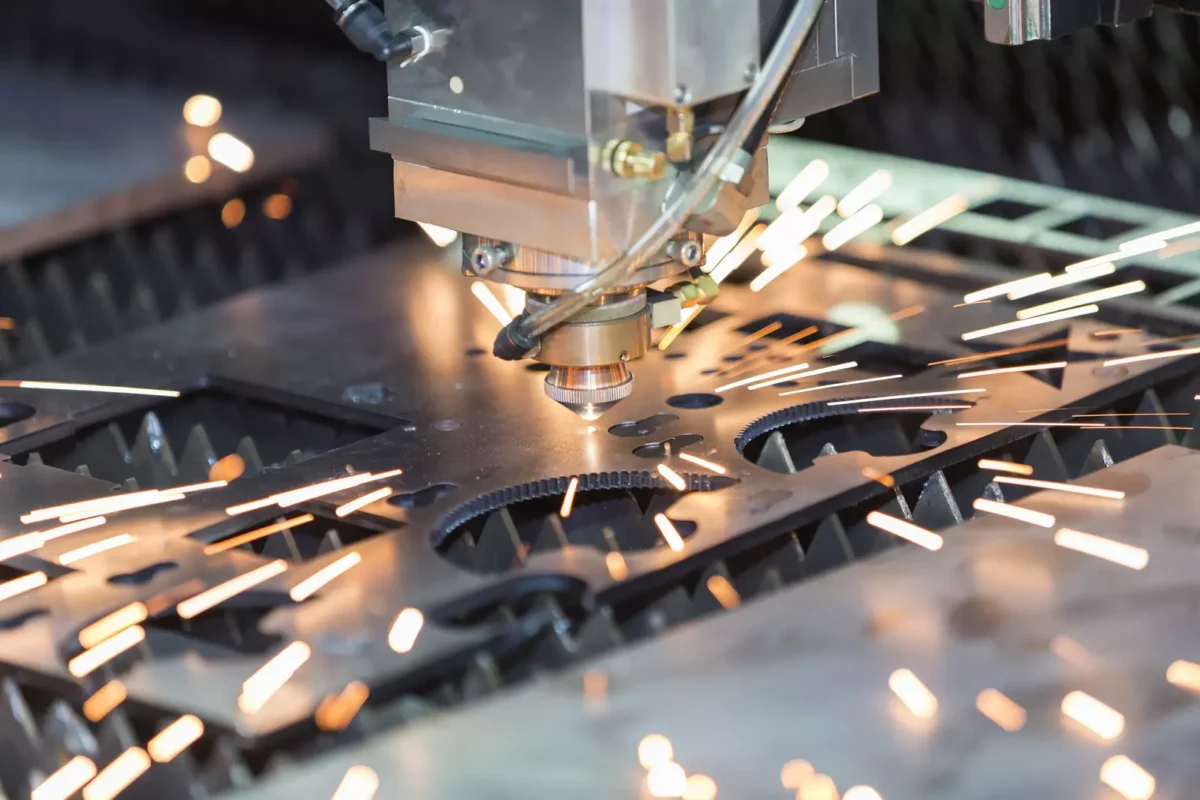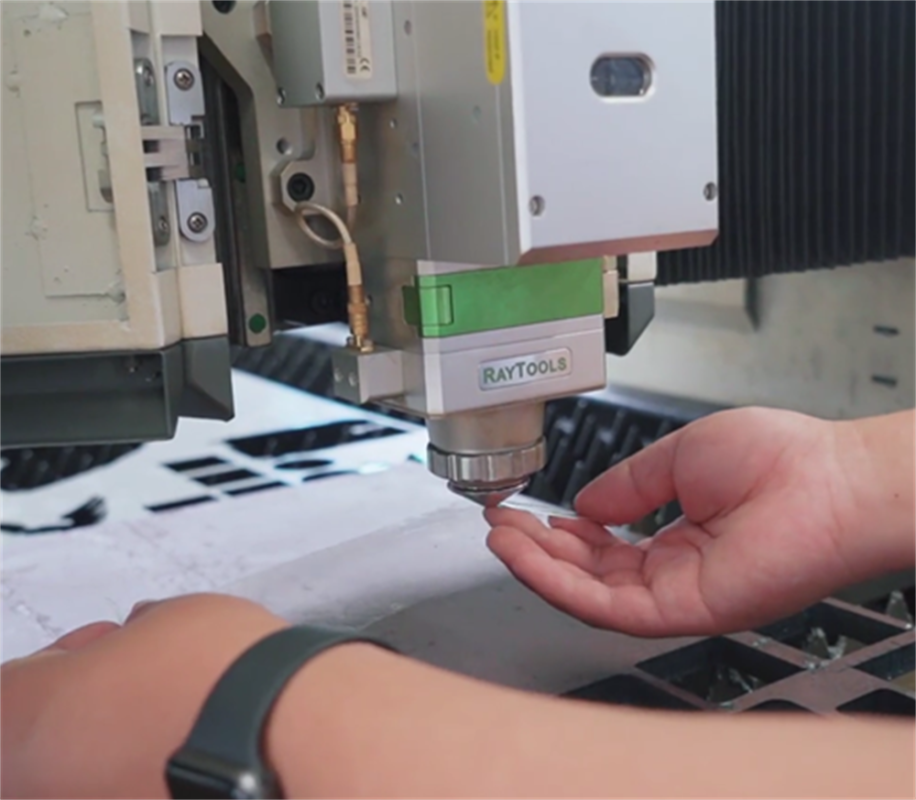Centrum dokumentacji
Kompleksowe instrukcje techniczne i przewodniki, które pomogą Ci opanować obsługę maszyn HARSLE i zoptymalizować wydajność obróbki metali
Jak szybkie są maszyny do cięcia laserowego w obróbce metali?
Maszyny do cięcia laserowego stosowane w obróbce metali są powszechnie znane ze względu na możliwość zwiększenia szybkości i wydajności produkcji. Jeśli pracujesz w branży obróbki metali, możesz zastanawiać się, ile czasu te maszyny mogą Ci zaoszczędzić. Choć ich reputacja w zakresie szybkości i precyzji jest zasłużona, rzeczywista wydajność różni się w zależności od kilku ważnych czynników. W tym artykule omówię, jak szybko działają maszyny do cięcia laserowego, co wpływa na ich prędkość cięcia i jak zwiększyć wydajność dzięki odpowiedniej konfiguracji.
Co decyduje o prędkości Maszyny do cięcia laserowego?

Rodzaj i grubość materiału
Pierwszą rzeczą, którą należy wziąć pod uwagę, jest materiał, z którym pracujesz. Wycinarki laserowe obsługują stal miękką, stal nierdzewną, aluminium, miedź i mosiądz, ale każdy z nich reaguje inaczej na proces cięcia. Na przykład, arkusz stali miękkiej o grubości 1 mm można ciąć znacznie szybciej niż arkusz stali nierdzewnej o grubości 6 mm. Ogólnie rzecz biorąc, cieńsze materiały umożliwiają znacznie szybsze cięcie.
Moc lasera i typ maszyny
Lasery o większej mocy zapewniają szybsze cięcie. Laser światłowodowy o mocy 6 kW może przeciąć stal nierdzewną o grubości 3 mm z prędkością do 30 m/min, podczas gdy laser o mocy 2 kW może osiągnąć prędkość zaledwie około 10–12 m/min dla tego samego materiału. Lasery światłowodowe są również bardziej energooszczędne i zapewniają wyższe prędkości niż lasery CO₂, szczególnie w przypadku metali o wysokim współczynniku odbicia.
Rodzaj gazu i metoda cięcia

Zastosowany gaz wspomagający – zazwyczaj tlen, azot lub powietrze – odgrywa kluczową rolę w prędkości cięcia. Cięcie azotem jest czystsze i generalnie szybsze w przypadku cienkich blach, natomiast cięcie tlenem jest bardziej odpowiednie dla grubszej stali, ale może wymagać niższych prędkości ze względu na utlenianie. Cięcie powietrzem to opłacalny kompromis, często stosowany w przypadku blach o średniej grubości i umiarkowanej prędkości.
Ścieżka cięcia i złożoność projektu

Proste geometrie z długimi liniami prostymi pozwalają maszynie utrzymać maksymalną prędkość. Jednak skomplikowane wzory lub ostre narożniki wymagają spowolnienia lub zatrzymania głowicy laserowej, co zmniejsza ogólną wydajność cięcia. Dlatego projekt części i strategia rozmieszczania mają kluczowe znaczenie dla optymalizacji prędkości.
Przykłady prędkości w świecie rzeczywistym
Oto średnie prędkości cięcia, jakich można się spodziewać w zależności od mocy i rodzaju materiału:
| Moc lasera | Tworzywo | Grubość | Średnia prędkość (m/min) |
|---|---|---|---|
| Światłowód 2kW | Stal miękka | 1 mm | 15–18 |
| Światłowód 3kW | Stal nierdzewna | 2 mm | 10–12 |
| Światłowód 6kW | Aluminium | 3 mm | 20–25 |
| Światłowód 10 kW | Stal miękka | 6 mm | 12–15 |
Prędkości te mają charakter orientacyjny i mogą się różnić w zależności od modelu urządzenia, ustawień gazu, ostrości obiektywu, a nawet temperatury otoczenia.
Wskazówki dotyczące maksymalizacji prędkości i wydajności cięcia
Zoptymalizuj swoje programowanie CNC
Korzystanie z inteligentnego oprogramowania do zagnieżdżania i ścieżek cięcia może radykalnie skrócić czas przemieszczania się poza procesem cięcia. Zawsze najpierw symuluj program, aby wyeliminować niepotrzebne ruchy głowicy.
Utrzymywanie kalibracji maszyny

Zabrudzone soczewki, źle ustawione lustra lub nieprawidłowa ostrość mogą spowolnić prędkość cięcia. Regularna kalibracja i czyszczenie zapewniają optymalną wydajność maszyny.
Dopasuj dyszę i ciśnienie gazu

Odpowiedni rozmiar dyszy i ciśnienie gazu umożliwiają płynniejsze i szybsze cięcie. Na przykład użycie azotu pod wysokim ciśnieniem może zwiększyć zarówno prędkość, jak i jakość krawędzi cięcia stali nierdzewnej.
Często zadawane pytania
Czy maszyny do cięcia laserowego w obróbce metali są szybsze niż maszyny do cięcia plazmowego lub strumieniem wody?
Tak, szczególnie w przypadku cienkich i średnich arkuszy. Cięcie laserowe zapewnia większą prędkość i drobniejsze szczegóły w porównaniu z cięciem plazmowym i strumieniem wody, które lepiej sprawdzają się w przypadku grubszych lub niemetalowych materiałów.
Jaki materiał można najszybciej ciąć laserem?
Najwyższe prędkości cięcia można uzyskać przy cięciu stali miękkiej i aluminium, szczególnie cienkich arkuszy (poniżej 2 mm).
Czy mogę zwiększyć prędkość cięcia bez utraty jakości?
Tak, poprzez modernizację lasera do większej mocy, wykorzystanie gazu wspomagającego azot, optymalizację ścieżki narzędzia i dbanie o dobrą konserwację maszyny.
Wniosek
Maszyny do cięcia laserowego w obróbce metali oferują doskonałą prędkość i precyzję, szczególnie podczas cięcia cienkich i średniej grubości blach technologią lasera światłowodowego. Rozumiejąc zmienne wpływające na prędkość – takie jak rodzaj materiału, moc lasera, wybór gazu i konstrukcja części – możesz dobrać odpowiednią konfigurację do swoich potrzeb i zmaksymalizować wydajność. Jeśli rozważasz modernizację lub potrzebujesz spersonalizowanych rekomendacji, skontaktuj się z zespołem HARSLE, aby uzyskać fachową poradę.













